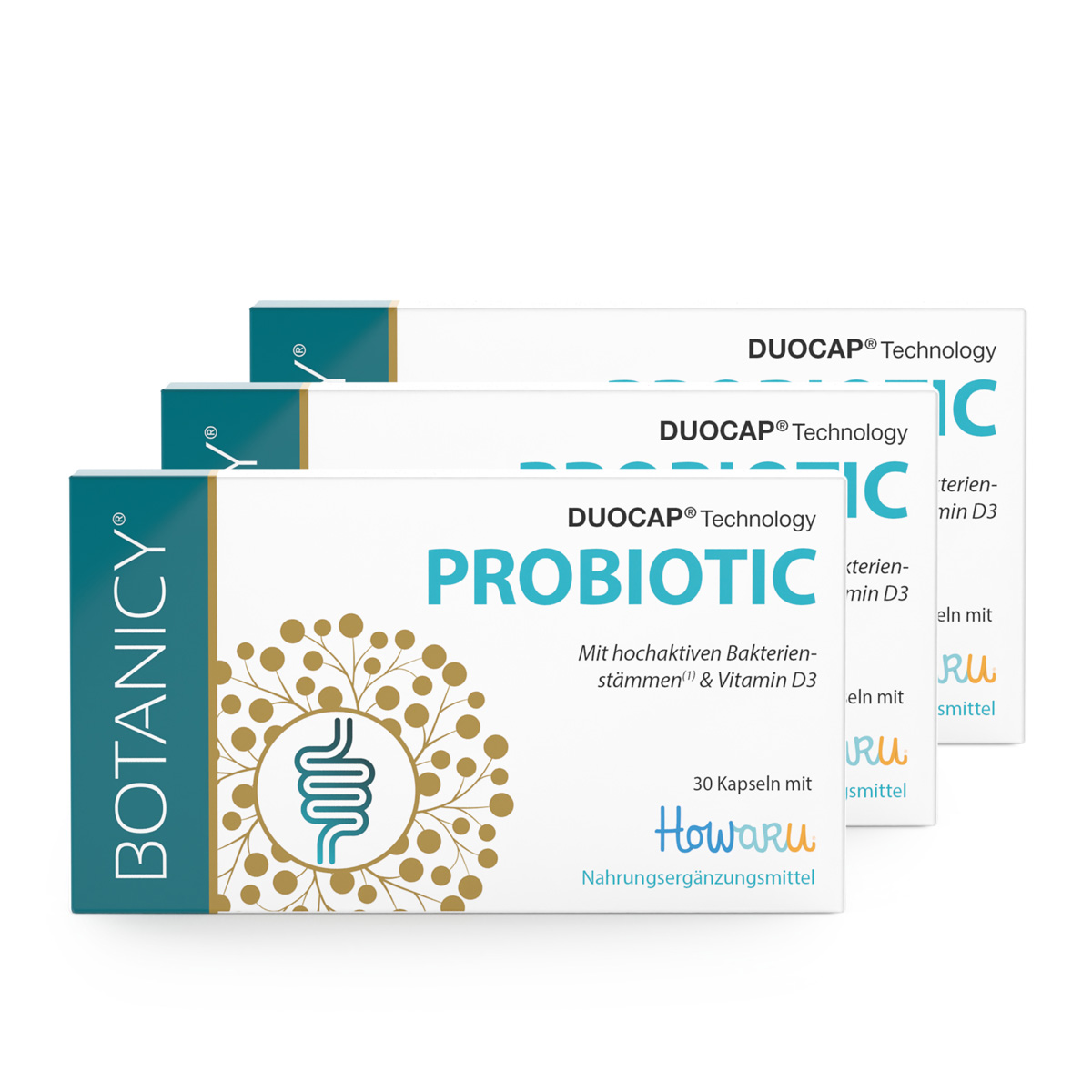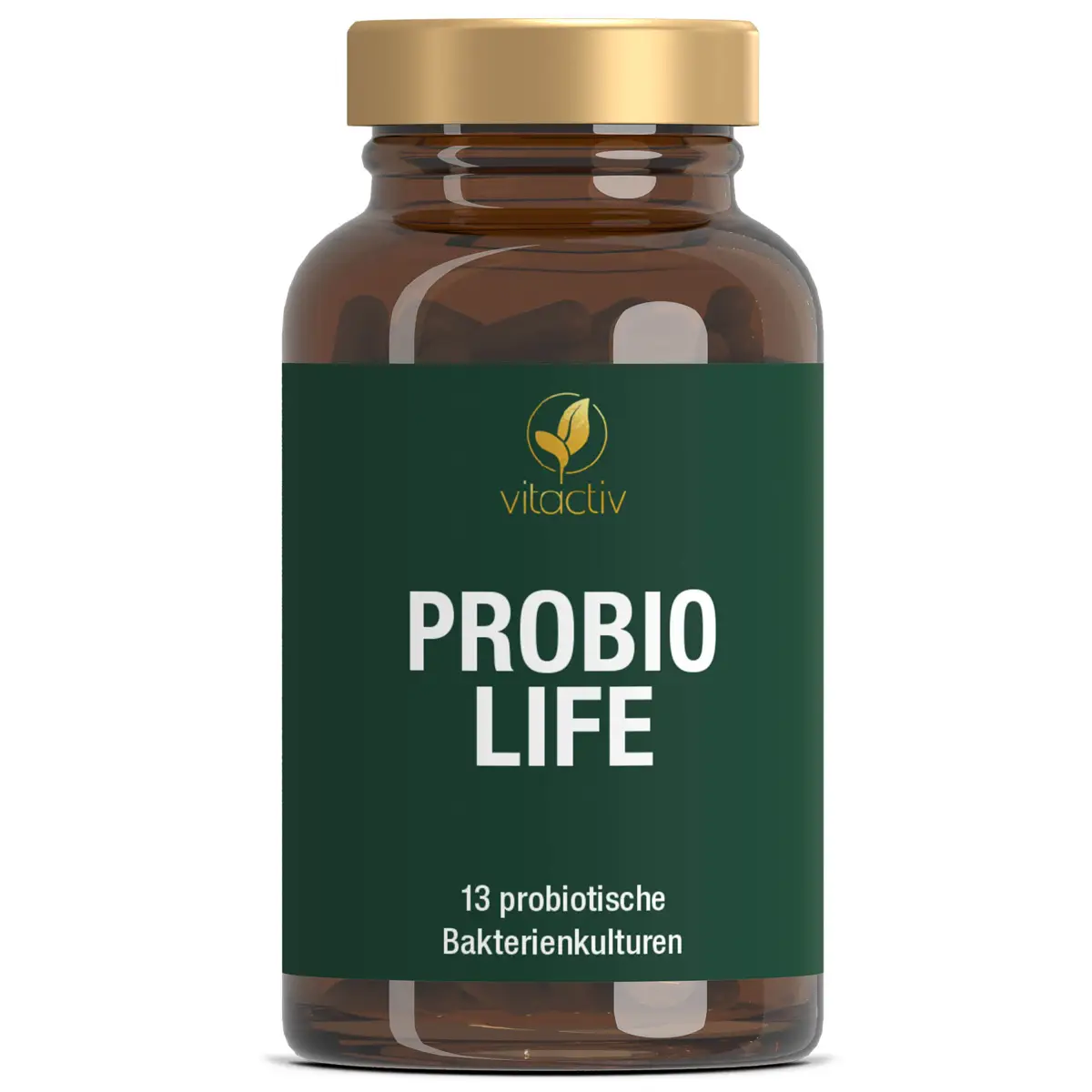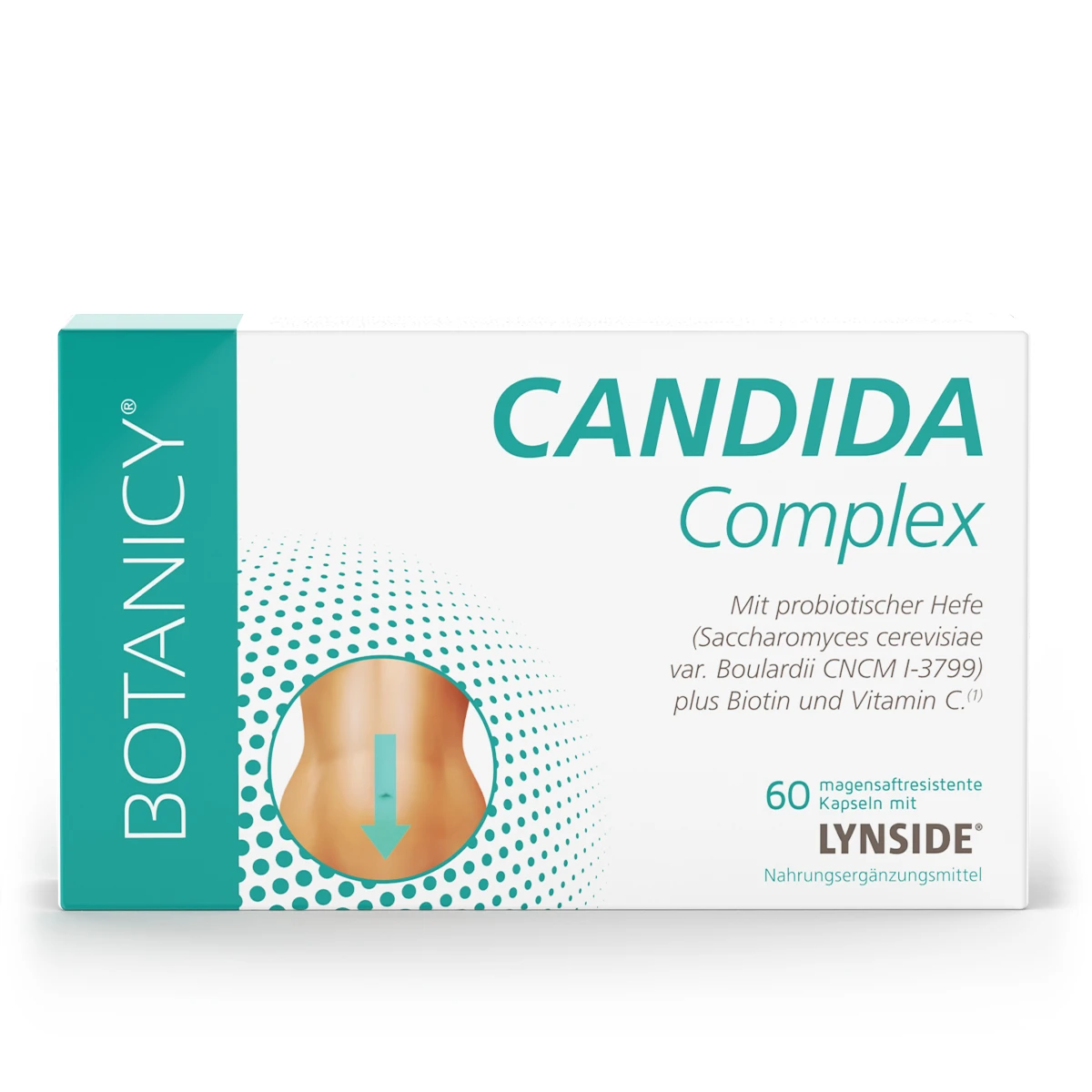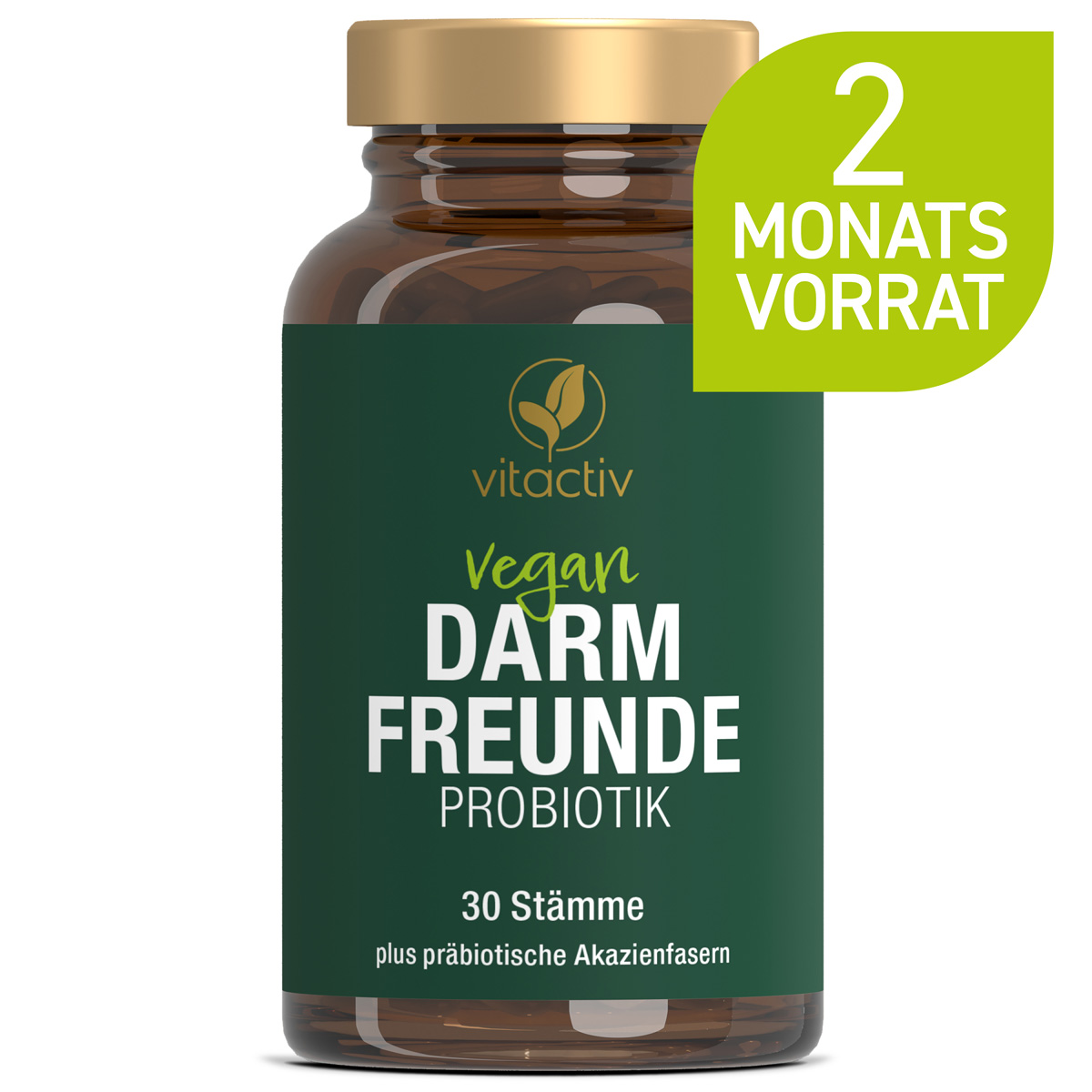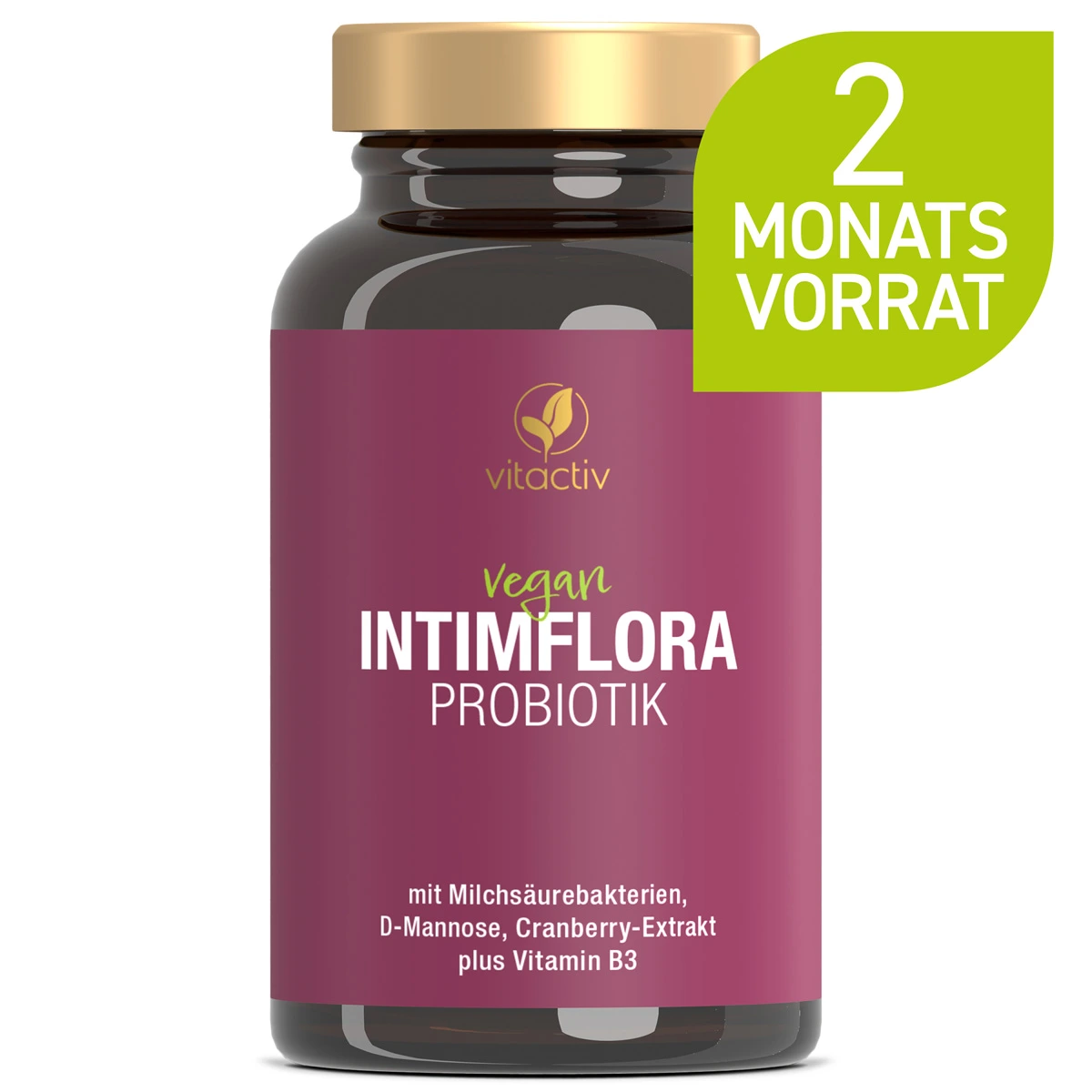Probiotic bacteria
Content: 0.078 kg (€576.54* / 1 kg)
€44.97 €59.97
(€576.54 / 1 kg)Content: 0.0359 kg (€375.77* / 1 kg)
€13.49 €17.99
(€375.77 / 1 kg)Content: 0.028 kg (€642.50* / 1 kg)
€19.99 (€713.93 / 1 kg)Content: 0.023 kg (€847.39* / 1 kg)
€19.49 €22.99
(€847.39 / 1 kg)Content: 0.039 kg (€499.74* / 1 kg)
€22.99 (€589.49 / 1 kg)Probiotic bacteria - good bacteria
Many people initially associate bacteria with something unclean that should be eliminated if possible. However, many bacteria are actually quite useful and survival is not possible without them.
Good bacteria include probiotic bacteria, for example. These occur naturally in the gut. They are an integral part of the intestinal flora and help to maintain a healthy balance in the digestive system. But what happens if the intestinal flora gets out of balance or the beneficial intestinal bacteria are damaged, as is often the case when taking antibiotics, for example? The intake of probiotic foods or food supplements can support the number and diversity of these bacteria.
Probiotics: more than just hype
Probiotic bacteria(probiotics) have received increased attention in recent years. These are microorganisms that are used both prophylactically and therapeutically and can help to stabilize or create healthy intestinal flora.
However, if you suffer from an illness, you should not take probiotics on your own, but should discuss this with your doctor. Otherwise, your body may not be able to adequately process the amount of bacteria and, in the worst case, supplementation may even be counterproductive.
Taking probiotics with antibiotics
It is now well known that antibiotics fight both harmful and beneficial bacteria. It is therefore often advised to take probiotics during treatment with antibiotics. But is this advisable at the same time or should we wait until the antibiotics have been discontinued?
In fact, probiotic supplementation can be started while taking antibiotics to support the microbiome in the gut. This also has the potential to help alleviate or prevent antibiotic-related side effects such as diarrhea.
Important to note: Take the probiotic a few hours after the antibiotic. Otherwise, you run the risk of the antibiotic immediately destroying the beneficial, supplemented bacteria. If in doubt, discuss the intake with your doctor.
Acid blockers and the intestinal flora
It is now known that acid blockers such as omeprazole, esomeprazole and pantoprazole, which are prescribed for severe heartburn, among other things, also have a negative effect on the intestinal flora. It is therefore advisable to only take them for short periods of time if possible.
If it is medically necessary to take acid blockers over a longer period of time, taking probiotics at the same time can be discussed with the doctor treating you.
Probiotics in food
Can probiotics also be taken with food? Yes, you can! Fermented foods are particularly suitable for this. They should therefore be at the top of your diet:
- Sauerkraut
- Sour cucumbers
- Apple cider vinegar
- kombucha
- kimchi
- miso
- Kefir
- Yoghurt
But be careful when buying food: only fresh products actually contain effective probiotics. For example, canned or jarred sauerkraut has been pasteurized to preserve it. During this heating process, however, many vitamins and probiotics are lost.
Therefore, only fresh, fermented foods, such as those available in organic food stores, or fermented foods from the home kitchen are truly probiotically effective:
Professionals are best off pickling cabbage themselves or ordering a kefir mushroom, for example, and letting it grow and thrive at room temperature in the kitchen.
If you want to support your microbiome, you can supplement a healthy, balanced diet with fresh probiotic foods with food supplements containing probiotic bacteria.
Food supplements with probiotics: What you should bear in mind
As probiotics are sensitive to heat, you should avoid hot foods and drinks for 30 minutes before and after taking the supplement. It is best to always take the product at the same time so that you don't forget to take it.
It's all in the mix: Around 500 benign bacteria and fungi live in the intestines of a healthy person. When buying a probiotic product, therefore, make sure that it contains a balanced, broad range of different bacterial cultures. Only then will it be able to support your microbiome holistically.
If you have any questions or need advice, please contact us.
Call us at:
0800 678 7997
Write us a message here
Use our chat at the bottom left
Search our FAQs here

